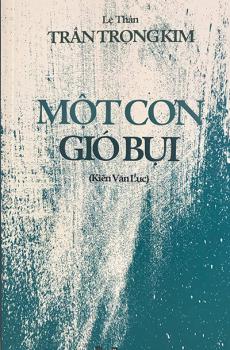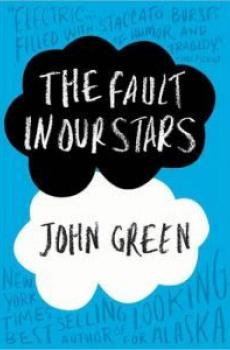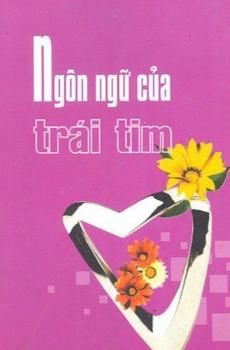A Book of Myths
A Book of Myths
Log in to download this book.
| Publisher | Chưa rõ |
|---|---|
| Accessible book producer | Public domain |
| Published year | 2007 |
| Coppy right | Chưa rõ |
Just as a little child holds out its hands to catch the sunbeams, to feel and to grasp what, so its eyes tell it, is actually there, so, down through the ages, men have stretched out their hands in eager endeavour to know their God. And because only through the human was the divine knowable, the old peoples of the earth made gods of their heroes and not unfrequently endowed these gods with as many of the vices as of the virtues of their worshippers. As we read the myths of the East and the West we find ever the same story. That portion of the ancient Aryan race which poured from the central plain of Asia, through the rocky defiles of what we now call “The Frontier,” to populate the fertile lowlands of India, had gods who must once have been wholly heroic, but who came in time to be more degraded than the most vicious of lustful criminals. And the Greeks, Latins, Teutons, Celts, and Slavonians, who came of the same mighty Aryan stock, did even as those with whom they owned a common ancestry. Originally they gave to their gods of their best. All that was noblest in them, all that was strongest and most selfless, all the higher instincts of their natures were their endowment. And although their worship in time became corrupt and lost its beauty, there yet remains for us, in the old tales of the gods, a wonderful humanity that strikes a vibrant chord in the hearts of those who are the descendants of their worshippers. For though creeds and forms may change, human nature never changes. We are less simple than our fathers: that is all. And, as Professor York Powell[1] most truly says: “It is not in a man’s creed, but in his deeds; not in his knowledge, but in his sympathy, that there lies the essence of what is good and of what will last in human life.”
The most usual habits of mind in our own day are the theoretical and analytical habits. Dissection, vivisection, analysis—those are the processes to which all things not conclusively historical and all things spiritual are bound to pass. Thus we find the old myths classified into Sun Myths and Dawn Myths, Earth Myths and Moon Myths, Fire Myths and Wind Myths, until, as one of the most sane and vigorous thinkers of the present day[2] has justly observed: “If you take the rhyme of Mary and her little lamb, and call Mary the sun and the lamb the moon, you will achieve astonishing results, both in religion and astronomy, when you find that the lamb followed Mary to school one day.”
In this little collection of Myths, the stories are not presented to the student of folklore as a fresh contribution to his knowledge. Rather is the book intended for those who, in the course of their reading, frequently come across names which possess for them no meaning, and who care to read some old stories, through which runs the same humanity that their own hearts know. For although the old worship has passed away, it is almost impossible for us to open a book that does not contain some mention of the gods of long ago. In our childhood we are given copies of Kingsley’s Heroes and of Hawthorne’s Tanglewood Tales. Later on, we find in Shakespeare, Spenser, Milton, Keats, Shelley, Longfellow, Tennyson, Mrs. Browning, and a host of other writers, constant allusion to the stories of the gods. Scarcely a poet has ever written but makes mention of them in one or other of his poems. It would seem as if there were no get-away from them. We might expect in this twentieth century that the old gods of Greece and of Rome, the gods of our Northern forefathers, the gods of Egypt, the gods of the British race, might be forgotten. But even when we read in a newspaper of aeroplanes, someone is more than likely to quote the story of Bellerophon and his winged steed, or of Icarus, the flyer, and in our daily speech the names of gods and goddesses continually crop up. We drive—or, at least, till lately we drove—in Phaetons. Not only schoolboys swear by Jove or by Jupiter. The silvery substance in our thermometers and barometers is named Mercury. Blacksmiths are accustomed to being referred to as “sons of Vulcan,” and beautiful youths to being called “young Adonises.” We accept the names of newspapers and debating societies as being the “Argus,” without perhaps quite realising who was Argus, the many-eyed. We talk of “a panic,” and forget that the great god Pan is father of the word. Even in our religious services we go back to heathenism. Not only are the crockets on our cathedral spires and church pews remnants of fire-worship, but one of our own most beautiful Christian blessings is probably of Assyrian origin. “The Lord bless thee and keep thee.... The Lord make His face to shine upon thee.... The Lord lift up the light of His countenance upon thee....” So did the priests of the sun-gods invoke blessings upon those who worshipped.
We make many discoveries as we study the myths of the North and of the South. In the story of Baldur we find that the goddess Hel ultimately gave her name to the place of punishment precious to the Calvinistic mind. And because the Norseman very much disliked the bitter, cruel cold of the long winter, his heaven was a warm, well-fired abode, and his place of punishment one of terrible frigidity. Somewhere on the other side of the Tweed and Cheviots was the spot selected by the Celt of southern Britain. On the other hand, the eastern mind, which knew the terrors of a sun-smitten land and of a heat that was torture, had for a hell a fiery place of constantly burning flames.
In the space permitted, it has not been possible to deal with more than a small number of myths, and the well-known stories of Herakles, of Theseus, and of the Argonauts have been purposely omitted. These have been so perfectly told by great writers that to retell them would seem absurd. The same applies to the Odyssey and the Iliad, the translations of which probably take rank amongst the finest translations in any language.
The writer will feel that her object has been gained should any readers of these stories feel that for a little while they have left the toilful utilitarianism of the present day behind them, and, with it, its hampering restrictions of sordid actualities that are so murderous to imagination and to all romance.
“Great God! I’d rather be A Pagan suckled in a creed outworn; So might I, standing on this pleasant lea, Have glimpses that would make me less forlorn; Have sight of Proteus rising from the sea; Or hear old Triton blow his wreathèd horn.”
JEAN LANG.





